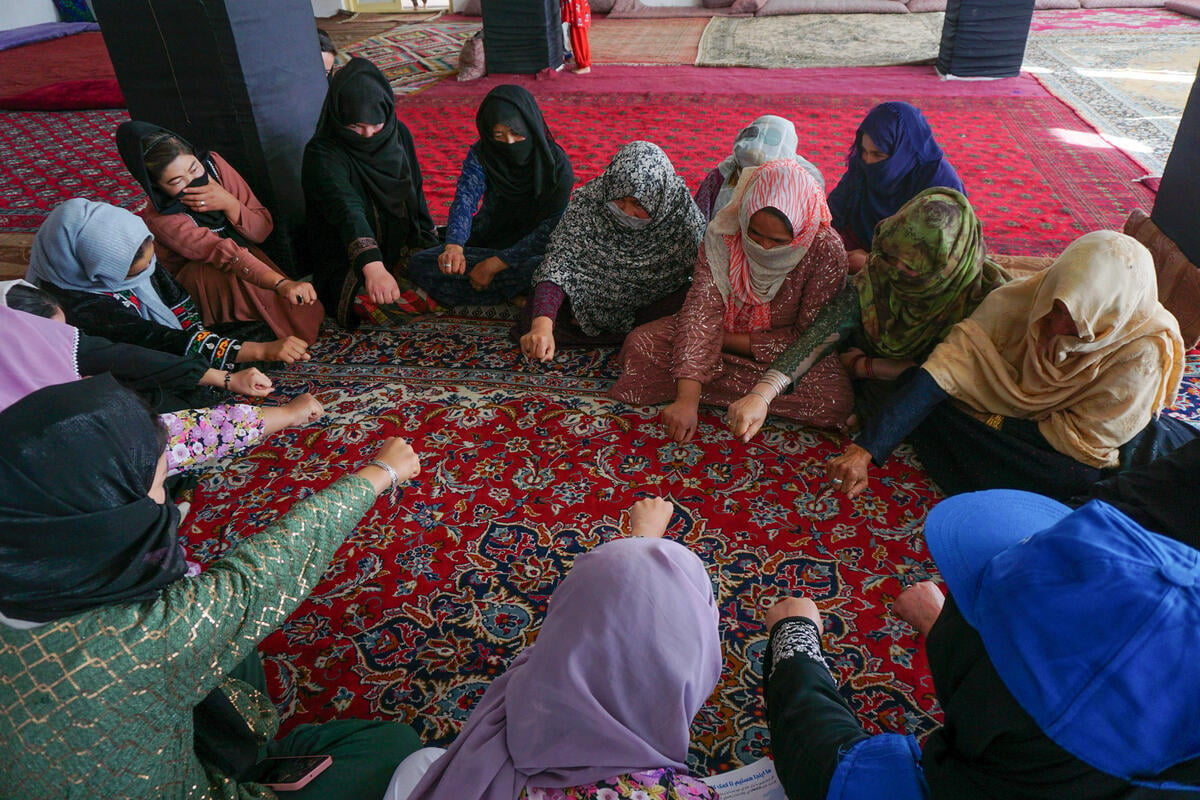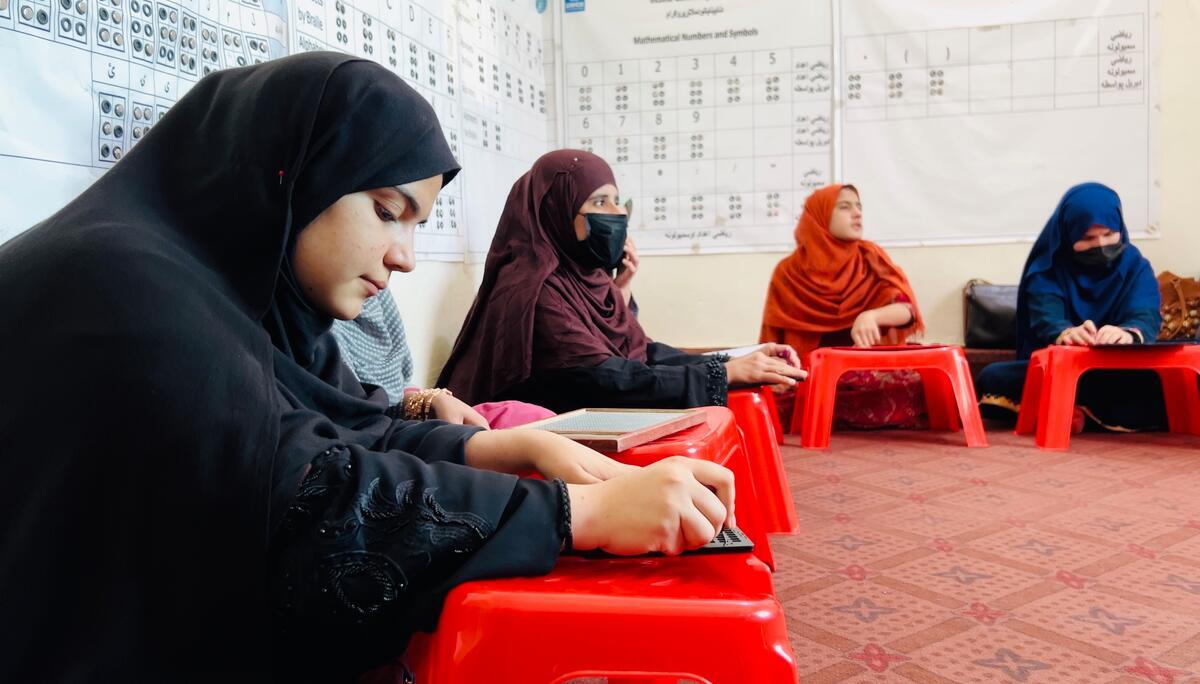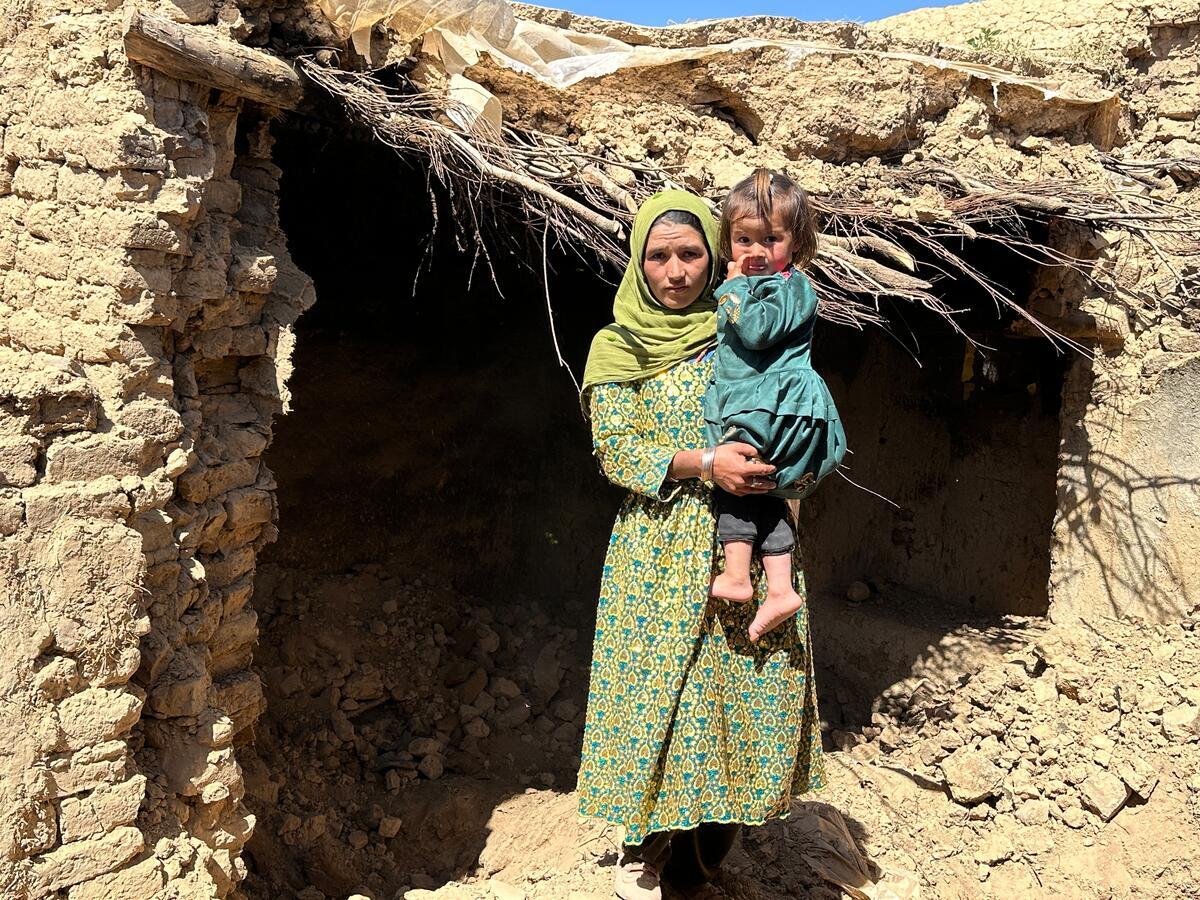Afghanistan Humanitarian Update No. 46
Afghanistan Humanitarian Update No. 46
At a Glance:
- Spontaneous Afghan returns on upswing
- Refugees trickle into Pakistan
- New distribution starts in Kabul
- Fresh activities in northern and western Afghanistan
Spontaneous Afghan returns on upswing
There are some signs that stability and normalcy are returning to parts of Afghanistan, including the spontaneous return of more than 17,500 people to various parts of the country over the past week alone.
More than 7,600 people returned this week from Iran, a new weekly record for 2001. Similarly, through the Chaman border crossing point from Pakistan's Balochistan Province, 7,000 Afghans returned home this week, while more than 3,500 Afghans reportedly crossed home to Kabul and Jalalabad through Pakistan's Khyber Pass.
It is too early to tell if this upsurge in Afghan returns will be sustained. Many of these Afghans may be returning for the Eid festivities and they are clearly not the poorest of refugees. However, with Ramadan soon over, some Afghans may start spontaneously repatriating. In any case, more than 17,500 people going home in a week is a positive sign. The fresh figures indicate a vote of confidence among the Afghans living abroad in the recent turn of events.
UNHCR cautions Afghans not to rush back, nor should countries in the region rush any of the more than 3.5 million refugees home. The security situation in many parts of Afghanistan remains tense, and the war- and drought-ravaged country requires an enormous about of humanitarian relief and reconstruction assistance before large-scale returns can be considered sustainable.
Refugees trickle into Pakistan
Refugees continue to arrive in Pakistan, and UNHCR continues to call on neighbouring states to admit anyone seeking safety.
UNHCR staff at the Chaman border crossing in Pakistan's Balochistan Province count an average of more than 200 Afghans a day still arriving at the UN refugee agency's Killi Faizo transit site at Chaman.
Overall in Pakistan, UNHCR estimates that some 200,000 Afghans have arrived in the country since 11 September, most of them accommodated with relatives and friends in cities like Quetta and Peshawar where most of the country's more than two million long-time Afghan refugees live.
Some 35,000 Afghans are assisted in six UNHCR camps mainly located near the Chaman border crossing. As the Roghani site near Chaman is full, UNHCR already has 200 tents erected in its seventh camp at Landi Karez, where water and sanitation work is also under way. Some 4,500 destitute Afghans currently sheltered in the Killi Faizo border camp should begin moving to the new Landi Karez camp following the Eid holiday.
Afghan refugees living in urban areas like Quetta and Peshawar continue to come forward volunteering to transfer to camps where they can receive UN relief assistance. Since beginning transfer operations in Quetta nearly three weeks ago, UNHCR has relocated some 4,000 destitute Afghans from the provincial capital to the Mohammed Khele camp, and the agency expects to have some 20,000 Afghans shifted from Quetta by the end of the year.
On the logistics front, UNHCR staff in Quetta on Friday received four trucks carrying 25,000 mattresses contributed by the government of Japan that reached the capital of Pakistan's Balochistan Province after being off-loaded in Karachi from several Japanese Defense Force vessels. UNHCR also awaits a cargo flight loaded with 40,000 blankets contributed by the Austrian government, all goods that could eventually be shifted into Afghanistan, or distributed among Balochistan's many refugees.
New distribution starts in Kabul
In Kabul, UNHCR today distributed aid to 1,600 people from stocks that were airlifted to the city's Bagram airfield on Thursday by an Italian government-chartered Ilyushin-76 cargo plane. Following the end of the Eid celebrations that run through the middle of next week, UNHCR will begin distributing emergency winter assistance kits to some 50,000 people living in Kabul and three neighbouring provinces.
Fresh activities in northern and western Afghanistan
To the west, UNHCR currently has four international and 12 national staff in Mazar-i-Sharif, with additional staff on stand-by in neighbouring Uzbekistan who should all be back in Afghanistan by early next week. UNHCR activities in Mazar-i-Sharif remain constrained due to a lack of office space. UNHCR's office in Mazar-i-Sharif was looted following its withdrawal from the city in the wake of the terrorist attacks in the USA and it currently operates from WFP's premises.
Staff in Mazar report that Wednesday and Thursday there was fighting in Maymana (Faryab Province) and Pul-i-Khumri (Baghlan Province) but UNHCR national staff who returned to Pul-i-Khumri on Thursday say that the situation is now calm. The reports of fighting and uncertainty about the security situation is indicative of the instability that still prevails in many parts of Afghanistan. Working from Mazar-i-Sharif, UNHCR together with the French NGOs ACTED and Solidarités are distributing aid to 1,000 people in Balkh Province, including tents, blankets, jerry cans, buckets and plastic tarpaulins. In Baghlan Province UNHCR is initially targeting aid to some 2,500 displaced Afghans who will receive various items including blankets, cooking stoves, buckets, jerry cans, plastic tarpaulins, soap and kitchen sets.
In Herat, UNHCR staff report that the situation is stable within the city limits, though as with most communities in Afghanistan, many heavily-armed people remain present within the city. From Herat, UNHCR plans to assist displaced Afghans living in Badgis and Ghor provinces, and in collaboration with IOM, we will undertake a registration of displaced Afghans in the massive Maslakh displaced persons camp that shelters some 200,000 people. There are five sprawling camps for displaced Afghans around Herat.
Over the coming days, the United Nations plans to undertake security assessments in the eastern Afghan city of Jalalabad and also southwards in Kandahar which only recently fell to Taliban opposition forces. UNHCR is ready to re-open its offices in both cities if the results of the UN security review are positive.








